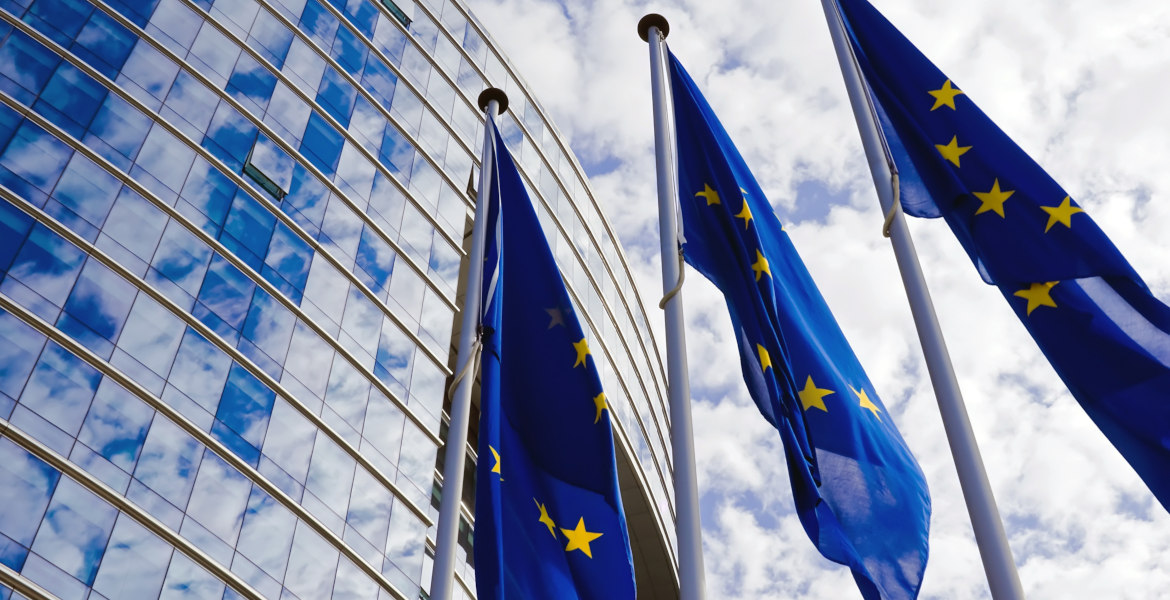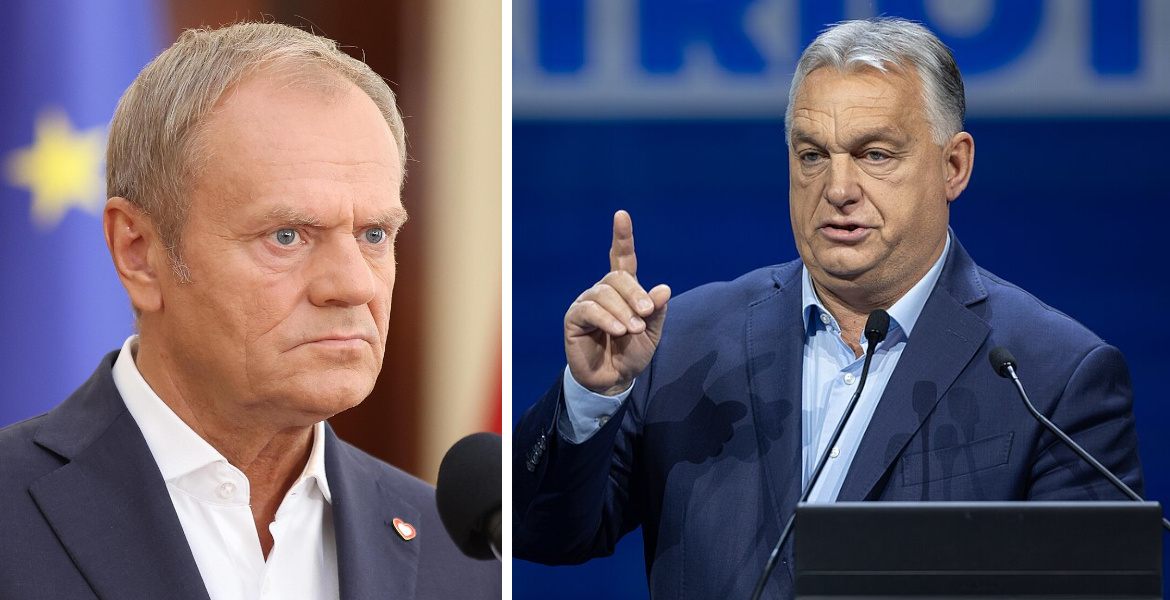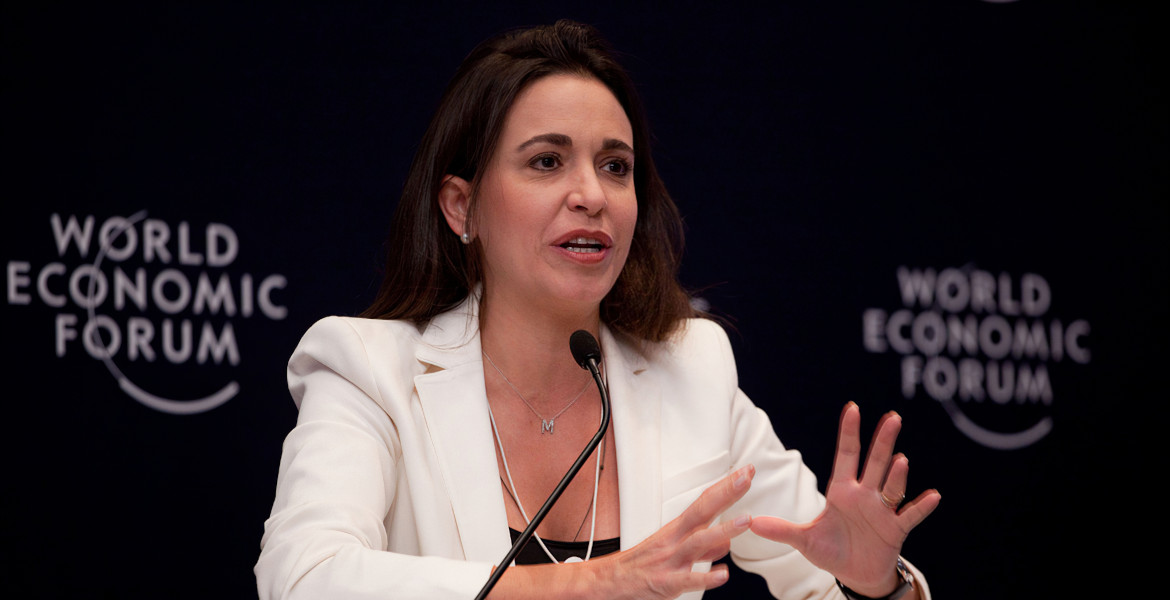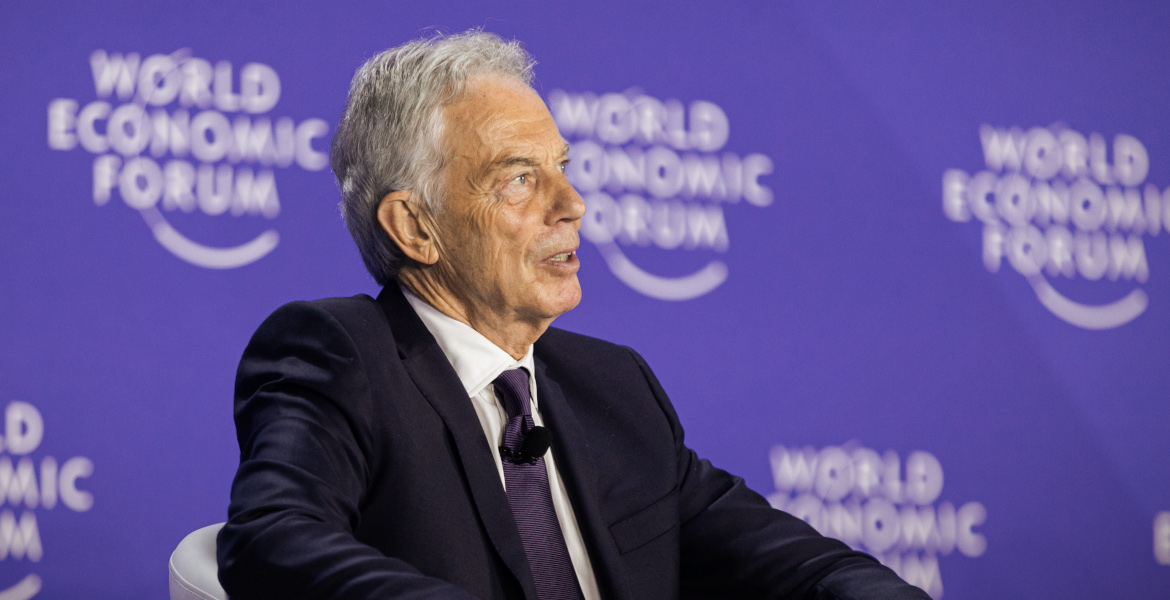"Collaboration for the intelligent age" was the main theme as leaders from all corners of the globe gathered for this year's power conference.
The Trump presidency, artificial intelligence, the war in Ukraine, deregulation and the future of Europe's economy were some of the topics on the agenda of the Davos powers that be this week.
The 55th annual meeting of the World Economic Forum (WEF) in Davos, Switzerland, ended on Friday after five days of discussions, networking and grandiose statements from the power elite. Under the theme "collaboration for the intelligent age", nearly 3000 participants from over 130 countries gathered, including more than 350 government leaders and 60 heads of state and government.
– This transition from the Industrial to the Intelligent Age is occurring at an exponential pace, carrying unprecedented risks for humanity as we strive to prepare and adapt for its complexities, declared Forum founder and chairman Klaus Schwab.
– Yet, it also offers significant opportunities to transcend our current challenges and spark a new renaissance – one defined by advancements in knowledge, health, culture and societal welfare, the ultra-globalist continued.
Klaus Schwab WEF 2025 Davos opening remarks:
"The scale and complexity of shaping the intelligent age, requires the commitment and engagement of all STAKEHOLDERS of GLOBAL SOCIETY." pic.twitter.com/4MmzxL1WYP
— VoxPopuli (@vpopulimedia) January 21, 2025
"The future is shaped by us"
Schwab called on the global community to approach the situation with "constructive optimism" and urged stakeholders from all sectors – government, business, civil society and academia – to unite in finding solutions to common challenges.
– By embracing constructive optimism and believing in our collective capacity and commitment to improving the state of the world, we can shape the Intelligent Age as an age where every human being can realize their full potential, he continued
– The future is shaped by us here in this room, he added proudly.
Schwab's words, however, were met with skepticism from critics who argue that the WEF has not delivered concrete results despite decades of lofty rhetoric. This year's conference focused on five key areas: "Reimagining Growth", "Industries in the Intelligent Age", "Investing in People", "Safeguarding the Planet" and "Rebuilding Trust".
WATCH: At Davis 2025, Klaus Schwab wants everyone to know who runs the world.
“The future is shaped by us here in this room” #WEF #KlausSchwab pic.twitter.com/30t8VHJ3Oz
— Prince Carlton (@_PrinceCarlton_) January 22, 2025
Middle East and Ukraine
Talks on Middle East peace intensified following ceasefires between Israel, Hamas and Hezbollah. Speculation grew that Donald Trump, back as US president, could be the one to convince Israeli Prime Minister Benjamin Netanyahu to accept a Palestinian state.
Meanwhile, Iran chose to use the forum to signal a willingness to renegotiate the nuclear deal. Vice President Javad Zarif stressed that Iran has no ambition to build nuclear weapons and called for a policy based on opportunities, not threats.
Peace negotiations for Ukraine also took center stage, with Trump expressing via a video link his willingness to meet immediately with the Russian president to negotiate an end to the conflict. However, Ukraine's president, Volodymyr Zelensky, demanded a 200,000-strong European peacekeeping force as a condition for an agreement – a request that Russia rejected. Meanwhile, Ukraine continues to prepare for increased privatization and foreign investment to support its reconstruction.
Trump at the center
Deregulation in the US was described as a catalyst for economic growth and mergers across industries. At the same time, cryptocurrencies continued to be a topic of debate, with many players awaiting upcoming US regulations before fully integrating crypto-assets into the traditional financial world.
Two years after the breakthrough of ChatGPT, tech leaders discussed how AI could transform the labor market, especially through the automation of repetitive tasks. The United States is currently ahead of China in AI development, but the need for technology-friendly policies and infrastructure investments was emphasized as crucial to maintain the lead.
Donald Trump's decision to withdraw the United States from the Paris Agreement and his efforts to boost the country's energy exploration have received mixed reactions. Europe has often been urged to speed up its own energy transition to remain competitive, while many policymakers in Davos pointed out that China and the EU, rather than the US, are the de facto drivers of the "global climate transition".
The President-elect's decision to dismantle federal programs for alleged diversity, equality and inclusion has caused some concern among left-liberal businesses, which argue that these initiatives have been crucial to their success. Discussions therefore took place on how to reformulate strategies to continue to promote what they claim is equality and representation of minorities in the workplace.
"Existential" challenges for Europe
Trump's return to the White House has also raised concerns among Chinese business leaders and investors that bilateral relations between the world's two largest economies could deteriorate further, but the US president unexpectedly refrained from imposing tariffs on China on his first day back in office, and during his Davos video address he expressed a need for China's help to end the war in Ukraine. The move led some to speculate about a coming rapprochement between Washington and Beijing.
Full Trump Speech to The World Economic Forum in Davos today.
40 Glorious minutes of Trump telling the Globalist lunatics to go fuck themselves without saying go fuck yourselves. pic.twitter.com/4EFHWf6wXo
— Concerned Citizen (@BGatesIsaPyscho) January 23, 2025
Global investors said they retain an interest in China-related assets but are keen to see more concrete stimulus measures. They will pay particular attention to clues about how Beijing plans to tackle the protracted property crisis, the high indebtedness of local governments and weak consumer demand.
European Central Bank chief Christine Lagarde described Europe's economic challenges as "existential". EU leaders called for faster action to facilitate innovation and prevent new businesses from moving to the US. At the same time, businesses want to see concrete liberalization measures to increase Europe's attractiveness.
Argentina's newly elected president, Javier Milei, shocked many participants with a controversial speech in which he sharply criticized what he called a destructive "woke ideology" and called for a return to libertarian principles. Milei's speech exemplified the growing divide between left-liberal and conservative forces that characterized this year's forum.
Growing criticism
During the forum, Chinese vice-premier Ding Xuexiang also sought to defuse tensions with the West by stressing China's openness to trade and improved business climate, while South African president Cyril Ramaphosa took the opportunity to speak about his country's priorities as G20 chair ahead of the Johannesburg summit later this year, highlighting the importance of solidarity, equality and sustainable development.
His French counterpart, Emmanuel Macron, argued for increased joint investment within the EU and deeper cooperation between member states' capital markets. At the same time, his vision of a more "united" Europe is being questioned by voices concerned about European countries losing their national sovereignty.
While discussions in Davos revolved around geopolitical uncertainty, climate change, the economy and technological advances, especially in AI, frustration grew outside the conference center. Activists and critics argue that the WEF has become an exclusive club for the elite, far removed from the realities and concerns of ordinary people. Despite promises to address global challenges, concrete action has often failed to materialize after previous forums.
Many critics also question the relevance of an event where the world's richest and most powerful gather to discuss problems they themselves often help create or exacerbate, describing it as a club of mutual admiration with no real popular influence.




